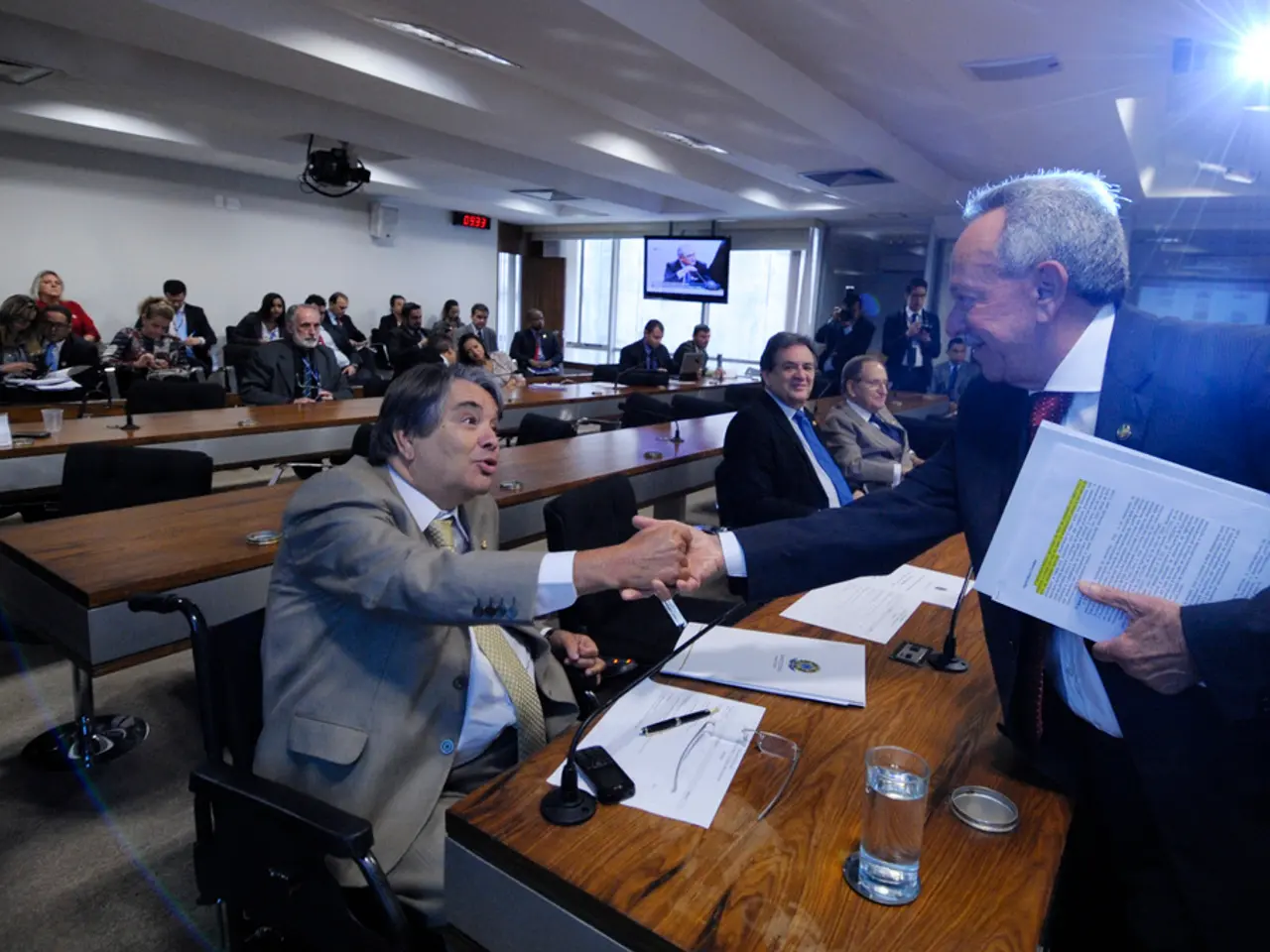Texas' partisan redistricting, overseen by Chief Justice John Roberts, maintains Republican control in the state's political maps
In a significant move, Texas legislators have proposed a new redistricting map aimed at disadvantaging several Democratic representatives, breaking from the usual post-census cycle. This action comes six years after the US Supreme Court's decision in Rucho v. Common Cause, which effectively barred federal courts from adjudicating claims of partisan gerrymandering.
In the 5-4 Rucho decision, the Court ruled that such claims present political questions beyond the reach of the federal judiciary, as there are no clear, manageable standards to judge when partisan districting becomes unconstitutional. Chief Justice Roberts, writing for the majority, emphasised the lack of an agreed-upon standard defining "fairness" in political maps, making it impossible for courts to determine when partisan advantage crosses the line into unconstitutional territory.
The decision has major consequences for American democracy. It allows partisan map drawers more freedom to engineer electoral advantages without federal judicial review, potentially undermining democratic principles of fair representation. Federal courts have no role in "reallocating political power between parties" based on partisanship because the Court found no constitutional or legal basis for such intervention.
However, challenges to redistricting based on race discrimination remain subject to federal oversight under the Voting Rights Act of 1965. Notably, Section 2 of the Act prohibits vote dilution based on race.
The Rucho decision has left significant gerrymandering disputes effectively in the hands of state courts and legislatures, rather than federal judges. The decision resonates as profoundly as the Roberts Court's decision last year in Trump v. United States, which granted presidents substantial immunity from criminal prosecution.
Justice Elena Kagan, taking the lead for dissenters, insisted workable standards existed and had been used by lower US court judges. The dissenting justices warned that the decision imperils American democracy and its system of free and fair elections. Justice Stephen Breyer, who retired in 2022, was among the dissenting justices in the redistricting cases six years ago.
The current redistricting controversy arises from President Trump's pressure on fellow Republicans to generate as many GOP-controlled districts as possible before the 2026 midterm elections for the US House of Representatives. The audacious Texas effort has prompted liberals to consider a counterattack in Democratic-controlled states such as California to create new maps that could boost their numbers.
The decision has generated a new era of partisan rivalry with vast repercussions for American democracy. The paired cases before the justices six years ago involved extreme gerrymanders by Republicans in North Carolina and by Democrats in Maryland. Lawsuits challenging extreme partisan gerrymanders can still be brought before state court judges, but state laws and judges vary in their protections for redistricting practices.
The opinion acknowledges the apparent unfairness of gerrymandered districts, but states that there is no constitutional authority for judges to oversee the politics of redistricting. The decision, like the Texas map proposal, underscores the need for vigilance in preserving fair representation and the integrity of American elections.
The Rucho decision has rendered federal courts incapable of adjudicating claims of partisan gerrymandering, leaving redistricting disputes primarily in the hands of state courts and legislatures, a situation that could potentially lead to an imbalance in representation due to engineered electoral advantages. The consequences of this decision resonate as profoundly as the Roberts Court's previous decision in Trump v. United States, which granted presidents substantial immunity from criminal prosecution.








